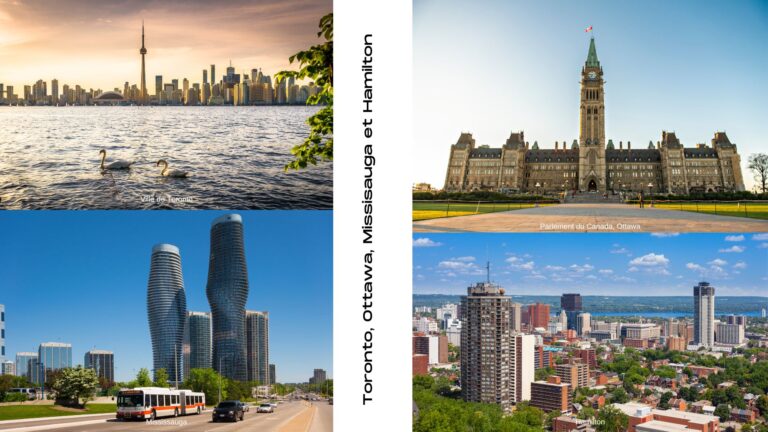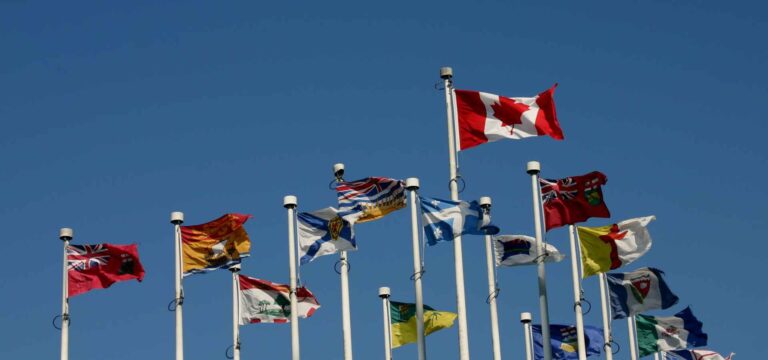Preparing for your move to Canada: 5 essential steps to successful immigration

Moving to Canada is an exciting and potentially life-changing project, but it's also a process that requires careful preparation. Between administrative procedures, cultural adjustments and travel logistics, it's essential to be well informed and to plan each step carefully. As a regulated Canadian immigration consultant, I've accompanied many people on their immigration adventure, and I'd like to share with you some practical advice to help you make this transition a success.
1. Choose the right immigration program
The first step in immigrating to Canada is to choose the immigration program that best suits your profile. Canada offers a number of immigration routes, depending on your personal situation, skills and professional goals. Here are some of the most common programs:
Skilled Worker Program (Express Entry)
If you have professional skills that are in demand in Canada, you may be eligible for the skilled worker program. This program uses the Express Entry system to manage applications. You will be evaluated according to criteria such as age, level of education, work experience, language skills, and much more.
Canadian Experience Class (CEC)
This program is designed for workers who have already acquired Canadian work experience, often on a temporary work permit. It is an interesting option for those who wish to transform their temporary work experience into permanent residency.
Provincial Nominee Program (PNP)
Some Canadian provinces have specific programs to attract immigrants based on their economic and demographic needs. For example, if you have skills in a sector in demand in a given province, you could be nominated for a provincial appointment that facilitates your immigration.
It's important to take the time to examine each of these programs and determine which one fits your profile. Don't hesitate to consult an immigration consultant to guide you through this crucial step.
2. Prepare your essential documents
Once you've chosen the immigration program that's right for you, it's crucial to prepare your documents. Here is a list of the documents you will generally need to provide :
- Valid passport
- Diplomas and transcripts
- Proof of professional experience
- Proof of language skills (language tests such as TEF or IELTS)
- Criminal record extract
Make sure that all your documents are up to date, properly translated into French or English if necessary, and certified. An oversight or error in your documents may delay the processing of your application, or even result in a refusal.
3. Preparing for your arrival: accommodation and employment
Even before you land in Canada, it's a good idea to plan ahead. installation to help you settle in right from the start. This includes finding temporary or even permanent accommodation, and looking for a job if you don't already have one.
Housing
To avoid finding yourself without accommodation when you arrive, consider booking temporary accommodation, such as a hostel or Airbnb. Once there, you can visit the neighborhoods that interest you and find long-term accommodation that suits your budget and needs.
Jobs
If you don't yet have an employment contract in hand, you can start looking for job offers right away. Many employers are open to online interviews. Platforms such as LinkedIn, Indeed, or Job Bank Canada allow you to apply even before you leave. If you already have a job offer, make sure you get the documents you need to start work as soon as possible, such as a Social Insurance Number (SIN).
4. Preparing for everyday life in Canada
Living in Canada also means adapting to a new way of life. lifestyle and a new culture. Here are some practical aspects to consider to make your transition smoother:
Climate
Canada is known for its harsh winters. If you come from a country with a tropical or temperate climate, it's important to be prepared for temperatures that can drop well below zero. Remember to invest in winter-appropriate clothing, such as insulated coats, warm boots and accessories like gloves and scarves.
Health care system
Canada's health care system is public and accessible to all permanent residents, but each province manages its own health insurance plan. You may have to wait several weeks to obtain your provincial health insurance card, so it's advisable to take out temporary private insurance to cover this period.
Transport
Canada is a vast country, and transportation options can vary depending on where you live. In major cities like Toronto, Vancouver or Montreal, public transport is well developed. On the other hand, if you live in a more rural area, a car may be essential. Find out more about Canadian driver's licenses, and check whether your current license is valid or needs to be converted.
5. Financial management
The financial aspect is a crucial part of your preparation for immigration. Here are a few tips to help you manage your finances during this transition period:
Installation budget
Moving to a new country can be expensive. Between airfare, first months' rent, furniture purchases and day-to-day expenses, it's important to have a settlement budget. Canada also requires proof of funds for some immigration applications, to ensure that you have enough money to support yourself during your first few months.
Open a bank account
As soon as you arrive, you can open a bank account Canadian currency. This will make it easier for you to manage your expenses, cash cheques and establish a credit history in the country. Many Canadian banks offer accounts specially designed for newcomers, with reduced fees and benefits such as credit cards to build your financial history.
Conclusion
Immigrating to Canada is an exciting adventure, but it requires careful planning. By choosing the right immigration program, carefully preparing your documents, anticipating your settlement, and adapting to the Canadian way of life, you'll maximize your chances of a successful transition. If you need personalized advice or assistance throughout the process, don't hesitate to contact me. As a Canadian immigration consultant, I'm here to guide you and help you make your Canadian dream a reality.







